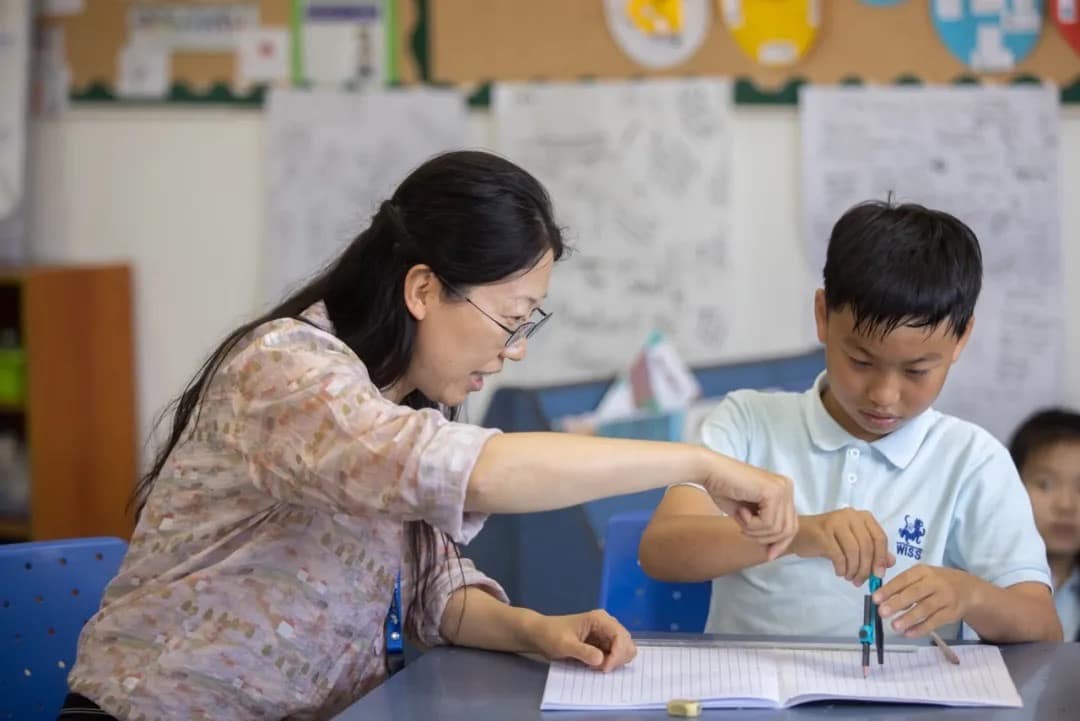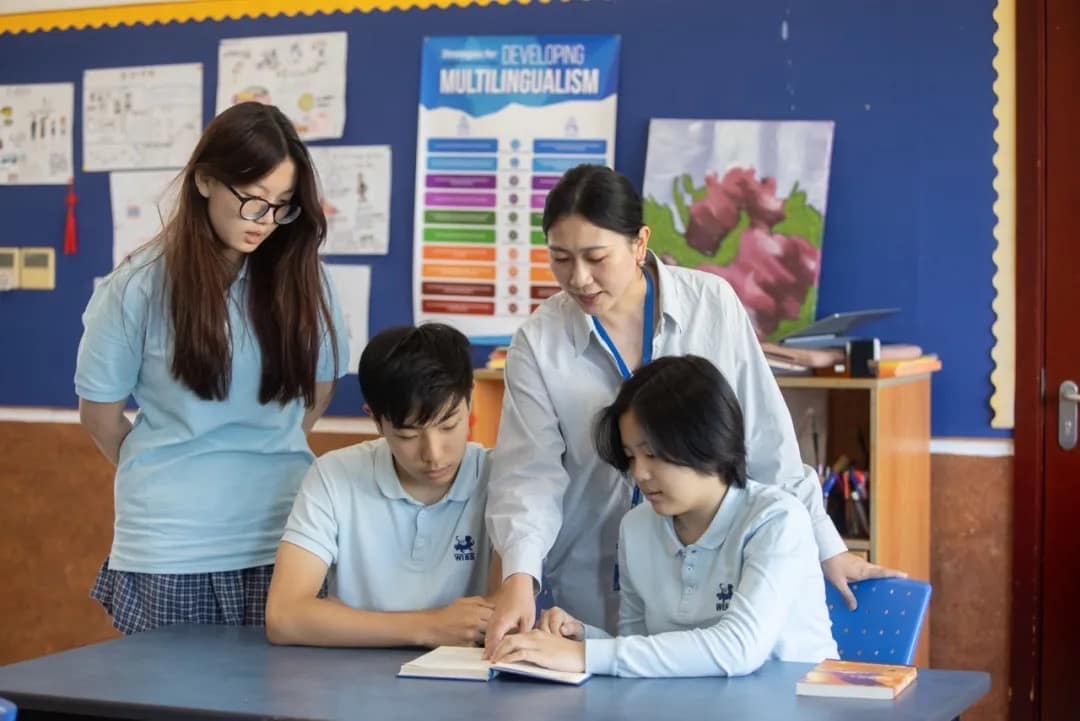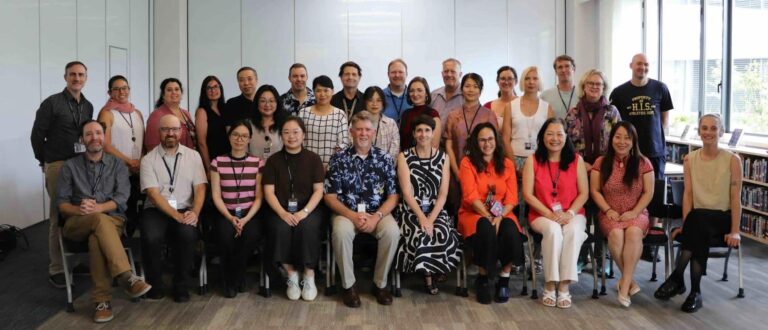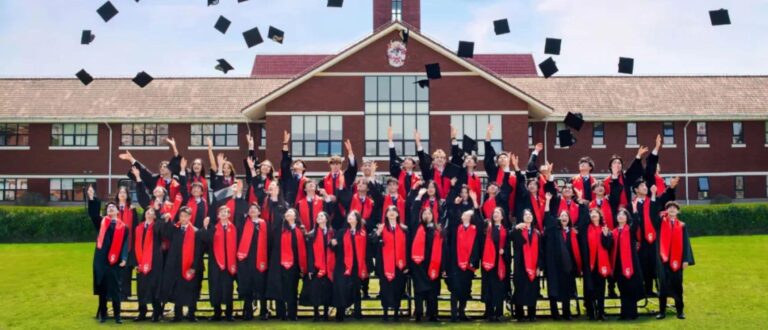At the Western International School of Shanghai (WISS), we are dedicated to fostering a culture of challenge and growth through mathematics education. Our comprehensive approach integrates numeracy into the curriculum from the earliest stages of learning, ensuring that students develop a robust mathematical foundation that applies to real-world contexts. This commitment aligns with our “Greatness Grows with Challenge” initiative, emphasizing the transformative power of challenging educational experiences. Our curriculum follows the International Baccalaureate (IB) framework, which prioritizes inquiry-based learning and conceptual understanding.
Lower Elementary: Building Strong Foundations
In Lower Elementary, encompassing Pre-Nursery to Kindergarten, students embark on their numeracy journey through hands-on materials and interactive experiences. This early exposure is critical for developing a solid mathematical foundation and instilling a love for learning.
- Hands-On Learning: Early learners interact with physical objects to grasp fundamental mathematical concepts. By visualizing their thinking through illustrations, they articulate their understanding more effectively, setting the stage for deeper exploration.
- Introduction to Calculation Strategies: As students progress, they are introduced to various calculation strategies. This gradual approach empowers them to explore different methods and discover what resonates best with their learning style, fostering resilience in problem-solving.
- Real-Life Applications: Students are encouraged to apply their knowledge in practical, age-appropriate situations. For example, while learning about healthy eating, they might engage in a fun activity where they sort different types of fruits and vegetables by color or size. They can also practice counting items as they help create a simple snack list. These activities reinforce their counting skills and introduce them to the concept of making healthy choices in an engaging and relatable way. This approach demonstrates how challenges can lead to meaningful learning experiences that are appropriate for their developmental level.
Through these engaging methods, students in Lower Elementary gain confidence in applying their math skills to daily life, showcasing how challenges contribute to their growth.
Elementary: Expanding Mathematical Understanding
As students transition to Grades 1-5 in Elementary school, the curriculum builds upon the foundational skills established in Lower Elementary while introducing increased complexity and challenges.
- Inquiry-Based Units: Mathematics is taught through thematic units that encourage the exploration and application of mathematical concepts. For example, a unit on “How We Organize Ourselves” may involve data collection and analysis, teaching students about graphs and statistics while challenging them to think critically about data interpretation.
- Collaborative Projects: Students engage in collaborative projects that require them to apply their numeracy skills across various contexts. These collaborations enhance their understanding and foster teamwork and communication skills. Working together on complex problems encourages students to challenge each other’s thinking and deepen their learning.
- Integration of Technology: Students are challenged to apply their knowledge in practical situations. For instance, while learning about healthy eating, they may create an online shopping list with a budget incorporating multiplication and money management. This exercise tests their math skills and reinforces their understanding of health and science, demonstrating how challenges can lead to meaningful learning experiences.
By fostering these connections, WISS empowers students to recognize the relevance of mathematics in their everyday lives while embracing challenges as opportunities for growth.
Secondary: Advanced Numeracy and IB Programme
In Secondary education at WISS, students encounter a more rigorous mathematics curriculum as part of the IB Middle Years Programme (MYP) and Diploma Programme (DP). Here, we emphasize that greatness grows through challenge.
- Revisiting Key Concepts: The curriculum revisits key concepts learned in Elementary school but at increased complexity. This scaffolding ensures students effectively build on their prior knowledge while facing new challenges, promoting deeper understanding.
- Active Learning through Real-World Applications: Technology supports active learning and helps students see connections across subjects such as arts, business, and sciences. For example, concepts learned in Elementary School about money management are revisited in Secondary School through currency conversions. Students participate in collaborative projects that incorporate real-world applications of mathematics, where they analyze data using statistics to interpret various scenarios. These challenges require them to think critically and apply their knowledge creatively. This continuity reinforces the idea that challenges build upon previous knowledge.
- Preparation for Higher-Level Mathematics: In the DP, students can choose higher-level mathematics courses that delve deeper into complex topics. The curriculum encourages critical thinking and problem-solving skills essential for success in university-level studies. By challenging themselves academically, students develop resilience and adaptability—traits that are vital for lifelong learning.
Numeracy in the IB Programme
The IB Programme at WISS is designed to cultivate strong numeracy skills through a holistic approach that integrates mathematics with other disciplines while reinforcing our belief that greatness grows with challenge.
- Conceptual Understanding: The IB emphasizes understanding mathematical concepts rather than merely memorizing procedures. This approach helps students develop reasoning skills and apply their knowledge to solve real-world problems, encouraging them to embrace challenges rather than shy away from them.
- Transdisciplinary Learning: Mathematics is integrated with subjects such as science and humanities, allowing students to see the interconnectedness of knowledge. For instance, the concept of money learned in elementary is applied in secondary education for currency conversions. This integration demonstrates how challenges can lead to comprehensive understanding across disciplines.
- Fostering Lifelong Learners: By promoting inquiry-based learning and real-world applications, WISS aims to inspire students to appreciate mathematics as a tool for understanding the world around them. By doing so, students foster a love for learning that extends beyond the classroom and encourages students to seek out challenges throughout their lives.
In conclusion, numeracy at WISS is intricately woven throughout the educational experience from Lower Elementary through Secondary school. By employing an inquiry-based approach within the IB framework and emphasizing real-life applications, WISS ensures that students acquire essential mathematical skills and develop a passion for learning that will serve them well throughout their lives. Our commitment to challenging educational experiences empowers our students to grow into capable individuals who embrace challenges as pathways to greatness.


